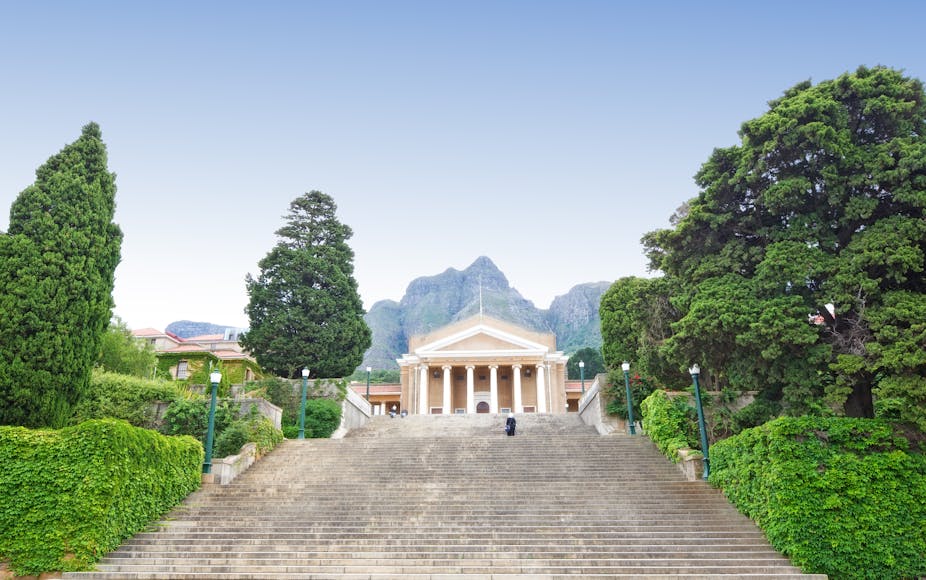It seems almost certain that South Africa’s universities cannot return to “business as usual” after the student protests that marked 2015. Some have asked what academics will learn from the protests and how they will - or won’t - alter their practice in classrooms.
Another question arises: how do those tasked with the role of being academic staff developers work in productive ways with university teachers to decolonise institutional cultures? This includes the knowledge drawn on in curricula and the ways in which teaching and student assessment happens.
Historically, the project of academic development in South Africa has been to contribute to social justice . It has been successful in some contexts, significantly shifting aspects of teaching and learning. But it has clearly not led to the large scale change that was envisioned in policy documents developed in the years immediately after apartheid ended.
This moment in the country’s higher education history offers an important opportunity for both academics and academic developers to rethink how they understand the purposes of a university and how, as a sector, they go about their business
Tough questions
Students and academics at the forefront of the movement to decolonise South African universities have drawn attention to structural and cultural factors the continue to exclude the majority from the knowledge project. There is a need for greater recognition of the fact that teaching and learning is not just about knowledge. In essence, it’s an ontological project too - it’s about an entire way of being. These are inextricably linked because of the country’s long history of social and economic exclusion.
It’s against this backdrop that academic developers need to reconceptualise how they work with academic staff. For instance, they could encourage and help academics to create spaces for genuine and critical dialogue with students about knowledge, course design, teaching methods, assessment and ways of engaging with students. In many institutions there is an existing culture of eliciting feedback from students on teaching and courses. However, this often amounts to ‘student satisfaction’ surveys which don’t ask the important questions or encourage dialogue.
There is a tricky line to walk. Academic developers must respect individuals’ disciplinary expertise, but still ask searching questions about the kind of knowledge they are imparting. They could ask academics to consider the following:
Why do you only draw knowledge from Europe, the USA, the Western world or the Global North?
Can you use examples of how this knowledge is used in Africa?
How is this knowledge linked to the histories of different students in your class? How does it validate their lives?
Academics should be encouraged to engage with critiques of their disciplines and heed philosopher Achille Mbembe’s warning about the dangers of drawing only from the traditional canon, which consists mainly of the knowledge of the powerful.
If academic developers are serious about contributing meaningfully to South Africa’s “decolonising turn” they have to be prepared to engage in courageous conversations. These might challenge academics’ deeply held beliefs and their strong disciplinary identities. They might also lead to an environment in which students are heard, listened to, understood and can thrive. This creates the space for students regardless of background or history to - in Mbembe’s words - say:
This is my home. I am not an outsider here. I do not have to beg or to apologise to be here. I belong here.
Exploring their own role
Academic developers need to ask themselves whether they have been sufficiently critical of their own practices. Have they paid sufficient attention to what it feels like to be the only or one of a few black lecturers in a department? Have they asked questions about why young black lecturers leave institutions? Have they created a sufficiently safe yet challenging space for the lecturers with whom they work?
They, too, need to move away from only drawing on theorists mainly from the UK and Australasia. Now is the time for them to do much more research that results in theories and concepts which are applicable to Africa’s academic staff development needs.
As the field has strengthened in some contexts, so some academic developers have come to occupy powerful roles. Some are deans and deputy vice-chancellors in their institutions. These key agents are now in a position to influence their colleagues not to just accept the status quo but to interrogate issues related to institutional identity and resistance to change. They are also in a position to ask critical questions about structures like teaching and learning centres. They can question who the academic developers are and whether they are responding appropriately to the changed context since the student protests in 2015.
No more business as usual
Academic developers must acknowledge to themselves and convince the academics with whom they work that education is never neutral. It is always underpinned by a political agenda. It can’t be business as usual. All those involved in higher education need to urgently consider the implications of a rapidly shifting political agenda. They need to apply their minds collectively and individually to what it means to ‘decolonise’ higher education in general and in specific disciplines.

